[목살]10 Quick Tips About Personal Injury Compensation Claims
17
2022.12.04 18:21
짧은주소
본문
Injury Lawsuits
There are numerous important aspects to consider when filing a lawsuit for injury. These include the statutes of limitation and pain and suffering, and special damages. These elements are essential to determining the amount of compensation that you will be awarded. When you are considering your injury claim it is important to take into account where you live. There are a variety of factors in the pain and suffering awards across states.
Pain and suffering
In a lawsuit involving injuries the effects of pain and suffering could play a significant role. It is essential to clearly and concisely record the injuries. This includes keeping accurate documentation of medical bills eyewitness testimony, and prescriptions. You might also require copies of doctor's notes as well as statements supporting your claim for pain and suffering. Photos of the injury claim could also be used to support your claim.
The kind of injury or loss will determine the amount of pain and suffering compensation. It can include mental or emotional suffering, loss of a loved one, or a injury to a limb. In some cases injuries may result in post-traumatic stress disorder (PTSD) which may make it difficult for individuals to return to their normal lives.
There are no predetermined amounts for damages for pain and loss and the amount that is awarded differs greatly from state to state. In many cases juries are challenged to determine the amount of pain and suffering that is appropriate. Sometimes, a court will modify an award for pain and suffering, but the majority of judges are reluctant to change an award of a non-economic juror.
Pain and suffering can also include mental distress that can be caused by inability to exercise. If a car crash causes someone to hurt their back, they may be frustrated, angry, and depressed, and may not be able to run the marathon. Mental suffering can also encompass emotional distress such as depression, grief or emotional trauma.
The severity and length of an injury determines the multiplier for pain or suffering. Certain injuries require ongoing medical costs and lifelong care, while others are only temporary. In these situations the higher multiplier could be used to calculate compensation.
Special damages
The amount a plaintiff can collect from an injury compensation claim lawsuit will depend on the nature of the claim. Special damages include lost future earning capacity, past and future wages and other items that cannot easily be replaced. They could also cover the cost of medical care and medical expenses. The amount a plaintiff can collect may be higher than what they could have been able recover on their own.
Special damages are awarded for injuries that leave a permanent and debilitating impact on a victim's life. For instance, a severe brain injury could cost between $85,000 to $3 million. Special damages might also be offered for injuries that have an impact on the quality of life or result from an expensive medical expense.
General damages are more difficult to quantify than specific damages. It's sometimes impossible to estimate the exact amount of plaintiff's suffering, pain, or emotional distress in some cases. Damage awards are determined by a variety factors , including the severity of injury, the ability of the lawyers representing the plaintiff, and the jury's sensitivity.
Special damages are awarded in lawsuits for injury to cover the losses caused by an accident. Special damages are usually financial compensation that is used to cover the victim's out-of-pocket expenses. They are also referred to as "economic damages" because they are simpler to determine and assign a specific dollar amount. These kinds of compensation are intended to put the victim in the same situation as they would be without the injuries.
General and special damages can be included in personal injury lawsuits. This is known as compensatory damages. The goal of compensatory damages is to compensate the victim for their suffering and pain. In other words, compensation in the case of personal injury is meant to help the victim. It is crucial to determine these damages prior to trial.
Limitations law
Statute of limitations is a legal limit on how long you can make a claim after an injury occurs. Although the deadline is generally not a lot of flexibility, there are some circumstances that can extend the time limit. These include fraud mental incapacity, minor age and fraud. Based on the circumstances, you may also be capable of extending the period of time by proving you weren't aware of your injury in time.
In the majority of instances, the statute of limitations for injury lawsuits starts to run from the date you find your injury, or the date at which you should have discovered it in a reasonable circumstance. For injury claim instance the case where a surgeon has left an instrument in your body during surgery, you could not realize it until months or even years later. If you are able to spot the injury within one year after the injury claim compensation, you can still bring an action against medical malpractice.
If you believe you might be entitled to compensation, you must file your lawsuit as soon as you can. If you delay to submit your lawsuit and you don't know when you will be able to receive the compensation you deserve. Here are some consequences of not filing your lawsuit on time: The defendant could attempt to pursue legal action against you and file a motion to dismiss your case.
Statute of limitations for injury lawsuits varies from state to state. The majority of personal injury lawsuits involve a defendant's negligence. If the statute of limitations for your lawsuit is over your claim is likely to be dismissed. Although exceptions to the statute can occur, they are not common.
Costs
Expert witness fees are one of the most expensive costs in injury lawsuits. These costs can add up to thousands of dollars. In most cases, injuries include a number of experts who testify about the cause of the injuries, as well as the product or car involved. Expert witnesses are often needed to demonstrate how much the injured person has lost in income or wages. Injuries lawsuits may also comprise court reporters and courtroom exhibits, in addition to expert witness fees.
The cost of filing a personal injury lawsuit will vary dependent on the circumstances and the number of experts. In many cases personal injury lawsuits can cost more than $15,000. These costs are typically incurred by the law firm on behalf of the client. In addition, a lot of these lawyers charge hourly rates. Moreover, if the lawsuit goes to trial, the cost could easily double or triple. A retainer might be required from the client prior to trial. This could amount to thousands of dollars.
The cost of filing a lawsuit differs from state to state. On average, lawsuits are priced at $10,000, but could go up to several thousand dollars if the lawsuit is complex. These costs can be covered if you win a lawsuit. However, if you don't have a strong case, settling may be the best option.
Injuries can also lead to medical expenses. Medical bills include doctor's visits, physical therapy, and mobility devices. Injured parties may be eligible to receive compensation for lost wages and medical expenses when the injuries are permanent.
Trials
Trials in injury lawsuits can take on a variety of forms including bifurcated trials and trial in chief. In bifurcated trials the defendant does not have to compensate the plaintiff until they are found to be responsible for plaintiff's injuries. Plaintiffs are required to present evidence to the jury, and the jury determines how much compensation is appropriate.
A jury could deliberate for up to a week. They try to reach a unanimous decision about the liability of the defendant, and the proper amount of compensation. They will discuss the matter and discuss various legal principles. Then the foreperson will inform the judge of the verdict. This happens in an open court.
In certain cases the defendant might demand that the plaintiff undergo a medical examination. The defendant could also order the plaintiff to pay the costs of the doctor or dismiss the case in the event that the plaintiff does not show to the appointment. However, it's important for plaintiffs to remember that a medical exam is not an offer to settle.
Discovery is the process of gathering evidence and exchanging it. personal injury claim trial trials for injuries typically begin with discovery. Common legal tools used in the process include a Bill of Particulars, Requests for Admissions, Interrogatories and production of documents. The process can also involve depositions and appointing witnesses. They are usually conducted under an oath.
Trials in personal injury attorney cases last anywhere from a day to the length of a week. Trials of half-day duration are held in certain states to allow lawyers to work on the case in the afternoon.
There are numerous important aspects to consider when filing a lawsuit for injury. These include the statutes of limitation and pain and suffering, and special damages. These elements are essential to determining the amount of compensation that you will be awarded. When you are considering your injury claim it is important to take into account where you live. There are a variety of factors in the pain and suffering awards across states.
Pain and suffering
In a lawsuit involving injuries the effects of pain and suffering could play a significant role. It is essential to clearly and concisely record the injuries. This includes keeping accurate documentation of medical bills eyewitness testimony, and prescriptions. You might also require copies of doctor's notes as well as statements supporting your claim for pain and suffering. Photos of the injury claim could also be used to support your claim.
The kind of injury or loss will determine the amount of pain and suffering compensation. It can include mental or emotional suffering, loss of a loved one, or a injury to a limb. In some cases injuries may result in post-traumatic stress disorder (PTSD) which may make it difficult for individuals to return to their normal lives.
There are no predetermined amounts for damages for pain and loss and the amount that is awarded differs greatly from state to state. In many cases juries are challenged to determine the amount of pain and suffering that is appropriate. Sometimes, a court will modify an award for pain and suffering, but the majority of judges are reluctant to change an award of a non-economic juror.
Pain and suffering can also include mental distress that can be caused by inability to exercise. If a car crash causes someone to hurt their back, they may be frustrated, angry, and depressed, and may not be able to run the marathon. Mental suffering can also encompass emotional distress such as depression, grief or emotional trauma.
The severity and length of an injury determines the multiplier for pain or suffering. Certain injuries require ongoing medical costs and lifelong care, while others are only temporary. In these situations the higher multiplier could be used to calculate compensation.
Special damages
The amount a plaintiff can collect from an injury compensation claim lawsuit will depend on the nature of the claim. Special damages include lost future earning capacity, past and future wages and other items that cannot easily be replaced. They could also cover the cost of medical care and medical expenses. The amount a plaintiff can collect may be higher than what they could have been able recover on their own.
Special damages are awarded for injuries that leave a permanent and debilitating impact on a victim's life. For instance, a severe brain injury could cost between $85,000 to $3 million. Special damages might also be offered for injuries that have an impact on the quality of life or result from an expensive medical expense.
General damages are more difficult to quantify than specific damages. It's sometimes impossible to estimate the exact amount of plaintiff's suffering, pain, or emotional distress in some cases. Damage awards are determined by a variety factors , including the severity of injury, the ability of the lawyers representing the plaintiff, and the jury's sensitivity.
Special damages are awarded in lawsuits for injury to cover the losses caused by an accident. Special damages are usually financial compensation that is used to cover the victim's out-of-pocket expenses. They are also referred to as "economic damages" because they are simpler to determine and assign a specific dollar amount. These kinds of compensation are intended to put the victim in the same situation as they would be without the injuries.
General and special damages can be included in personal injury lawsuits. This is known as compensatory damages. The goal of compensatory damages is to compensate the victim for their suffering and pain. In other words, compensation in the case of personal injury is meant to help the victim. It is crucial to determine these damages prior to trial.
Limitations law
Statute of limitations is a legal limit on how long you can make a claim after an injury occurs. Although the deadline is generally not a lot of flexibility, there are some circumstances that can extend the time limit. These include fraud mental incapacity, minor age and fraud. Based on the circumstances, you may also be capable of extending the period of time by proving you weren't aware of your injury in time.
In the majority of instances, the statute of limitations for injury lawsuits starts to run from the date you find your injury, or the date at which you should have discovered it in a reasonable circumstance. For injury claim instance the case where a surgeon has left an instrument in your body during surgery, you could not realize it until months or even years later. If you are able to spot the injury within one year after the injury claim compensation, you can still bring an action against medical malpractice.
If you believe you might be entitled to compensation, you must file your lawsuit as soon as you can. If you delay to submit your lawsuit and you don't know when you will be able to receive the compensation you deserve. Here are some consequences of not filing your lawsuit on time: The defendant could attempt to pursue legal action against you and file a motion to dismiss your case.
Statute of limitations for injury lawsuits varies from state to state. The majority of personal injury lawsuits involve a defendant's negligence. If the statute of limitations for your lawsuit is over your claim is likely to be dismissed. Although exceptions to the statute can occur, they are not common.
Costs
Expert witness fees are one of the most expensive costs in injury lawsuits. These costs can add up to thousands of dollars. In most cases, injuries include a number of experts who testify about the cause of the injuries, as well as the product or car involved. Expert witnesses are often needed to demonstrate how much the injured person has lost in income or wages. Injuries lawsuits may also comprise court reporters and courtroom exhibits, in addition to expert witness fees.
The cost of filing a personal injury lawsuit will vary dependent on the circumstances and the number of experts. In many cases personal injury lawsuits can cost more than $15,000. These costs are typically incurred by the law firm on behalf of the client. In addition, a lot of these lawyers charge hourly rates. Moreover, if the lawsuit goes to trial, the cost could easily double or triple. A retainer might be required from the client prior to trial. This could amount to thousands of dollars.
The cost of filing a lawsuit differs from state to state. On average, lawsuits are priced at $10,000, but could go up to several thousand dollars if the lawsuit is complex. These costs can be covered if you win a lawsuit. However, if you don't have a strong case, settling may be the best option.
Injuries can also lead to medical expenses. Medical bills include doctor's visits, physical therapy, and mobility devices. Injured parties may be eligible to receive compensation for lost wages and medical expenses when the injuries are permanent.
Trials
Trials in injury lawsuits can take on a variety of forms including bifurcated trials and trial in chief. In bifurcated trials the defendant does not have to compensate the plaintiff until they are found to be responsible for plaintiff's injuries. Plaintiffs are required to present evidence to the jury, and the jury determines how much compensation is appropriate.
A jury could deliberate for up to a week. They try to reach a unanimous decision about the liability of the defendant, and the proper amount of compensation. They will discuss the matter and discuss various legal principles. Then the foreperson will inform the judge of the verdict. This happens in an open court.
In certain cases the defendant might demand that the plaintiff undergo a medical examination. The defendant could also order the plaintiff to pay the costs of the doctor or dismiss the case in the event that the plaintiff does not show to the appointment. However, it's important for plaintiffs to remember that a medical exam is not an offer to settle.
Discovery is the process of gathering evidence and exchanging it. personal injury claim trial trials for injuries typically begin with discovery. Common legal tools used in the process include a Bill of Particulars, Requests for Admissions, Interrogatories and production of documents. The process can also involve depositions and appointing witnesses. They are usually conducted under an oath.
Trials in personal injury attorney cases last anywhere from a day to the length of a week. Trials of half-day duration are held in certain states to allow lawyers to work on the case in the afternoon.






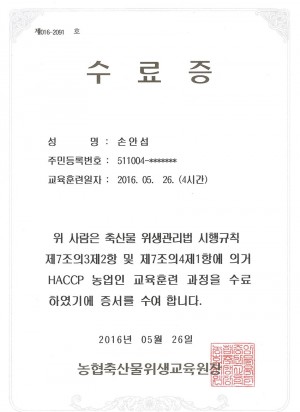
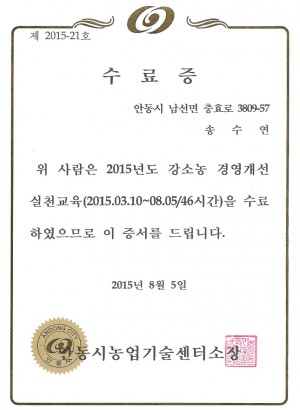
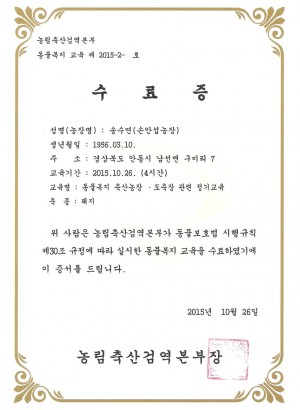
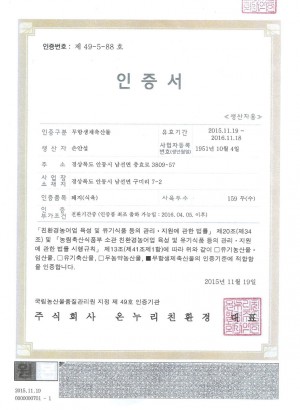
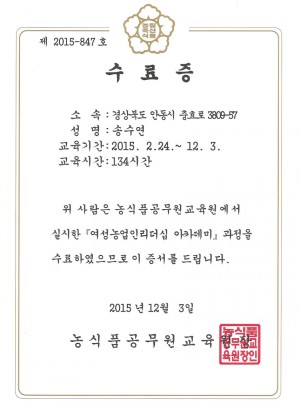
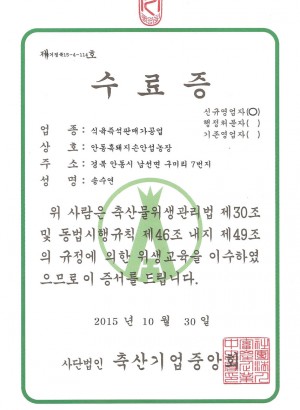
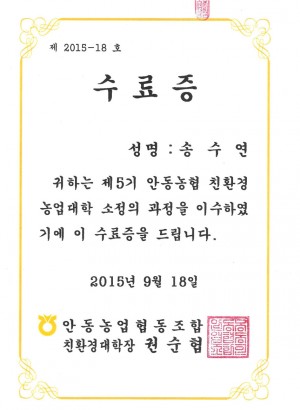
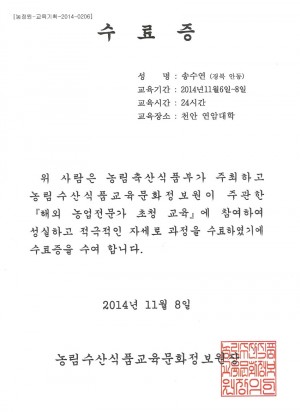

댓글목록
등록된 댓글이 없습니다.